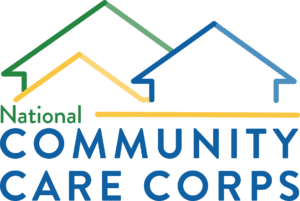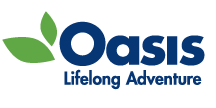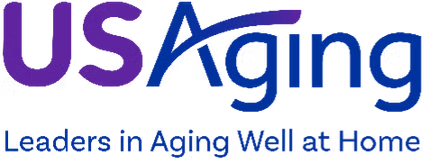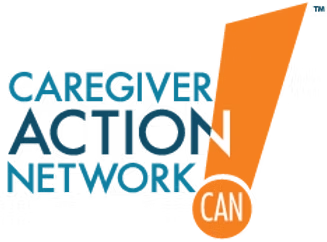Building communities of strength.
2022-2024 Grantees
This page highlights the impactful and innovative work to be accomplished by the third cohort of Community Care Corps grantees. Each snapshot includes a program overview highlighting key efforts, partners and future directions. Learn more about work of the Community Care Corps grantees and explore how your organization can implement its own innovative programs.
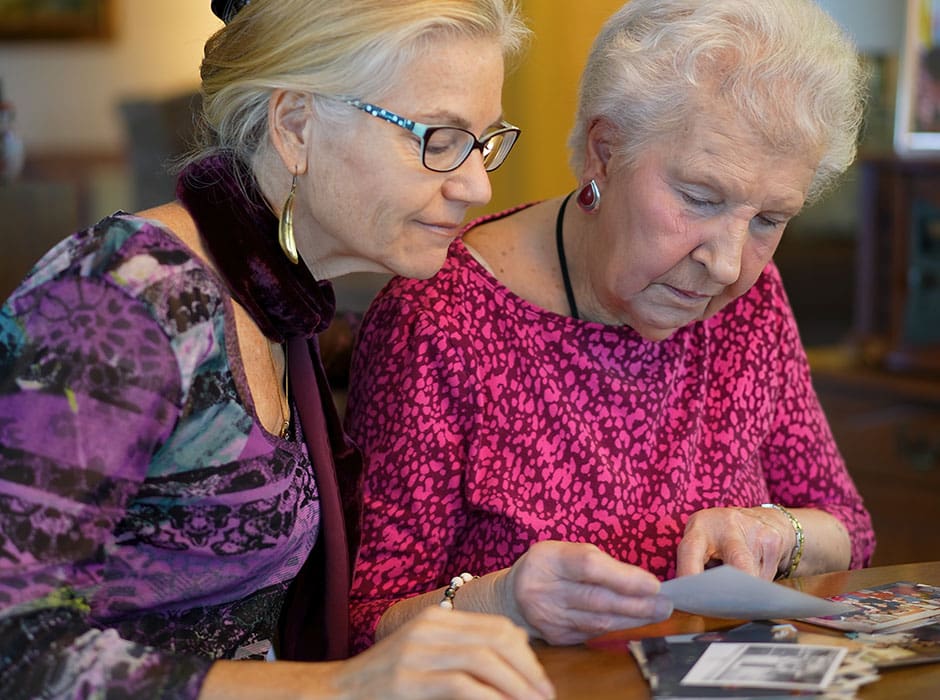
A Little Help’s work increases older adults’ ability to live independently in their homes on their own terms while building stronger, more integrated communities. Initiated by expressed need in the community, funding will enable A Little Help to strategically expand its Northern Colorado program and establish a permanent presence in western Weld County, including Greeley, Windsor, and Johnstown. With funding from Community Care Corps, A Little Help will recruit older adult members; engage volunteers; pilot a strength training component; cultivate partnerships; share, launch and pilot models nationally, and ultimately encourage and foster the community to meet its mission to help older adults thrive.
CaringMatters’ model includes in-home visits to economically vulnerable 60+ seniors who have difficulty living independently; volunteers will provide companionship, shopping for essentials, light housekeeping, food preparation; and transportation to medical appointments and social services. Caregivers of the in-home senior clients and other recruited family caregivers will participate in volunteer-facilitated support groups and/or receive check-in contacts from volunteers. The model also will work to connect seniors and caregivers with formal and informal community resources. A total of 40 seniors and 70 caregivers will be served by 50 newly recruited, trained and supported volunteers, all coming from the Montgomery County Maryland’s populations.
Duet will build on the success of year one of the grant, to significantly grow the number of dementia family caregivers served through its Meaning & Hope Institute by offering comprehensive wrap-around services (monthly educational webinars, personalized guidance, support groups, and peer support) that complement the Finding Meaning and Hope discussion series. These free-of-charge services will be easy to participate in through the Institute. Duet will increase recruitment and training to secure 80 new volunteer facilitators and add 20 partner organizations to support a greater number of dementia family caregivers nationwide, including Navajo and Spanish-speaking caregivers. Our expansion will improve caregivers’ health, well-being, and resiliency.
For 35 years, FamilyMeans Caregiving & Aging program has been supporting caregivers and providing meaningful opportunities to volunteers through a successful and established respite model. Our program will continue the enhancements to our existing in-home and group respite services, including in-person, virtual, and evening options; strengthen our continuum of respite services from early stages of need to more advanced needs through our early dementia group respite opportunity; and continue building and strengthening our volunteer infrastructure with strategic adaptations to recruitment, orientation, and incentives while evaluating their impact over time.
Hospice of the Valley’s (HOV) College Partners model engages college students in providing nonmedical respite assistance for older adults with dementia and family caregivers served in HOV’s Supportive Care for Dementia (SCD) program. SCD helps persons with dementia not yet on hospice to maintain independent at home. Collaborating with local colleges, HOV will recruit and train 55 new student volunteers (“College Partners”) to provide nonmedical respite visits to 55 SCD program clients and 55 family caregivers. Student incentives include a scholarship opportunity and training certificate. Goals are reduced family caregiver burden and improved quality of life for persons with dementia.
Institute for Community Equity and Sharing, Inc. dba One Community
Brooklyn, New York
The Sharing Network counters the damage chronic social isolation inflicts on seniors with intimate conversation groups over the phone. During successive terms, eighteen groups meet one hour a week. The medium is the phone to eliminate any impediment to participation. Participants, mostly in public housing in Fort Greene, Brooklyn, select from recreational, topical, artistic, active, and spiritual groups led by dedicated volunteer moderators. While not overlooking the rich content presented by moderators, the overriding goal is to bring people together in safe, supportive spaces where they can build relationships and recover the sense of self derived from social contact. Previously isolated elders now have “my second family,” “my sisterhood,” “a ball! It was like being in a group with people I grew up (with)…”
Jewish Family and Children’s Service of Greater Philadelphia
Philadelphia, Pennsylvania
Building on the services in our 2021-22 model, Jewish Family and Children’s Service of Greater Philadelphia’s (JFCS) proposed 2022-23 Hoarding Support Program model will expand the utilization of the volunteers to ensure that the growing number of individuals with Hoarding Disorder can receive support services and those who work with them gain knowledge about the disorder. The revised model proposes to increase the number of volunteers, clients served with volunteer-based supports, Buried in Treasures (BiT) support groups, and individuals reached through educational opportunities. This year JFCS will expand the activities of the peer volunteers and professional volunteers and develop a new Peer Support Specialist Certification Curriculum with a specialization in hoarding.
Lifespan of Greater Rochester, Inc. will recruit volunteers to provide respite for caregivers of older adults with dementia and/or chronic illness. This innovative model includes training volunteers to use specialized virtual reality programming with caregivers and receivers as part of the respite visit, formally evaluate its use and disseminate findings. Focused recruitment efforts will be carried out to expand our pool of in-home respite volunteers with varied backgrounds and lived experiences that reflect the communities we serve. This approach will fill the needs of caregivers and communities for enhanced respite services and pilot VR’s use in community-based settings to enhance quality of life and reduce isolation.
Lutheran Senior Services (LSS) is a mission-driven, not-for-profit network that specializes in housing, care, and support services for older adults. LSS will provide companionship and nonmedical services to 40 individuals aged 60 years and older living alone in two LSS Senior Affordable Housing communities in the Missouri county of St. Louis and St. Louis city. The goal is to increase their ability to live independently and to decrease social isolation. LSS will expand its companion program, Senior Connections, to include recruiting and training volunteers to provide laundry, housecleaning, and digital communication services to older adults. These additional services will enable residents to remain independent in their apartments and reduce social isolation. This will further the LSS mission of older adults living life to the fullest.
The Massachusetts Association for the Blind and Visually Impaired will help at least 225 visually disabled older adults remain independent and socially engaged by matching them with trained, long-term volunteers. Our model program will help disabled seniors remain in their homes by providing volunteer support for nonmedical daily living activities (ADLs) and transportation. This request will develop an existing volunteer program into a model of excellence that can be replicated. We propose to improve volunteer retention, increase recruitment of bilingual volunteers, and design a new consumer training for participants that will address the unique needs of older adults aging into vision loss.
NeighborLink Indianapolis provides home repairs at no cost to homeowners 62+ or those with a disability who have a household income at 150% or below the Federal Poverty Line and whose home is in Marion County, Indiana. Our mission is to help homeowners age in place safely. This program uses current volunteers for handy repairs and builds upon that team by recruiting and training additional volunteers in general handy/DIY skills.
These volunteers are in addition to our organized group volunteers who work on very simple yard or painting projects for a homeowner.
On My Own of Michigan will develop a stipend-based internship program for underrepresented social work and special education college students to help increase the number of people with developmental disabilities who are successfully living independently long-term.
Peninsula Agency on Aging’s Caring Neighbors Program provides transportation, errands/delivery assistance, safety check-in calls, friendly visits, canine companion visits, and light housekeeping services to individuals aged 60 and over and adults with a disability. The program will reduce social isolation, decrease food insecurity, and improve quality of life, as a total of 110 volunteers provide over 3,100 services to 350 participants. The Volunteer to Work Program will help to address the companion aide shortage. Hyper-local “branches” of the Caring Neighbors Program will be developed through partnerships with neighborhood associations to expand our volunteer base and the number of clients assisted.
The Penn Memory Center’s (PMC) Caring Difference is a suite of programs designed to support families living with dementia. Time Together and the Caring Collective are examples of two programs that deliver services through volunteers. In Time Together, memory impaired individuals receive up to 10 hours/week of companion care by college students, giving caregivers a break. In the Caring Collective, newer caregivers receive peer coaching/support from veteran caregivers. Goals of these novel programs are to reduce social isolation and enhance quality of life for the people with dementia, reduce caregiver burden, and provide learning opportunities to students interested in aging and dementia.
The Prisma Health Accountable Communities’ Community Care (CC) program is working to address basic nonmedical needs of un/underinsured patients by partnering with community and faith-based organizations to establish groups of volunteers to provide practical, emotional, and spiritual support not offered in traditional healthcare settings. CC would like to expand its current program to increase the number of volunteers and patients enrolled by broadening their referral sources and adding in a screening for social determinants of health. Moreover, the program would like to continue understanding its impact on the senior population and analyzing the potential to reduce patient depression, anxiety, and social isolation.
REACH Community Respite Ministry provides support to meet the social and emotional needs of adults living with mild to moderate dementia and their Care Partners. Our team of dementia-trained volunteers provide mentally, physically, emotionally, and socially engaging activities outside the home in a safe and caring setting. This time provides Care Partners with emotional support through our Care Partner support group, information regarding available resources, and personal time away during the day in which to rest and address their own needs.
Rebuilding Together New Orleans (RTNO) will expand our Safe at Home program, offering free critical repair services for low-income elderly and disabled homeowners. The primary goal of the program is improving the health, safety, and mobility for our homeowners, thus dramatically improving their quality of life. Our team of staff and AmeriCorps, in partnership with volunteers, will expand the program to include 20 additional families over the next 12 months. We believe expanding our Safe at Home program will increase our impact and lead to greater confidence in the ability of older adults to age in place.
SeniorAge will offer Senior Medical Companion support services to those requiring a person present at a health procedure or appointment. After confirming the senior’s wishes, the volunteer can be present at the procedure or appointment with emergency contact information. The volunteer can also help the patient record aftercare and medicine instructions. They will follow up with a call to reiterate doctor’s instructions and to see if there are questions. We have 15 volunteers currently and hope to add 15 more over the next 18 months. We believe this service will help more seniors connect with the healthcare they need, especially those who face barriers to care.
Operating since 1978, SAGE’s Friendly Visitors Program is the first of its kind in the nation, providing vital intergenerational social support for isolated and homebound older adults in New York City. Through weekly contact, SAGE volunteers offer companionship, assist with daily tasks that support independent living, and build meaningful, nurturing relationships. To reduce social isolation and support healthy aging among older adults who face limited social connections, our goal is to expand the number of Friendly Visitor matches by 50%, growing from 60 to 90 active matches.
The Sibling Leadership Network will provide support to caregivers of people with disabilities, aging parents, and their brothers and sisters with disabilities through the development of volunteer efforts in three areas:
1) Conduct a Sib2Sib Mentoring Program to provide mentoring for adult sibling caregivers.
2) Produce a monthly podcast that provides information to support adult siblings of people with disabilities, their aging parents, and their adult brothers and sisters with disabilities.
3) Conduct monthly virtual peer support forums called Sibposiums that engage sibling caregivers and individuals with disabilities, led by volunteers.
United HomeCare is a trusted industry leader with a 50-year history helping families care for their aging relatives. Through its AVUS™ Connect Tech Pals “Innovative Local Model,” United HomeCare provides volunteer nonmedical assistance through an intergenerational youth-led volunteer hybrid service that provides technology to family caregivers and homebound older adults ages 60+ experiencing loneliness and isolation and/or living in communities with limited resources, with the goal of connecting them to the communities in which they live. AVUS Tech Pals will train older adults and caregivers to use tablet technology engaging with them virtually in friendly conversations, provide companionship, and in-person home visits giving family caregivers much-needed respite. This model will further strengthen intergenerational volunteerism by engaging future generations to advocate on behalf of older adult causes.
United HomeCare is a trusted industry leader with a 50-year history helping families care for their aging relatives. Through its AVUS™ Connect Tech Pals “Innovative Local Model,” United HomeCare provides volunteer nonmedical assistance through an intergenerational youth-led volunteer hybrid service that provides technology to family caregivers and homebound older adults ages 60+ experiencing loneliness and isolation and/or living in communities with limited resources, with the goal of connecting them to the communities in which they live. AVUS Tech Pals will train older adults and caregivers to use tablet technology engaging with them virtually in friendly conversations, provide companionship, and in-person home visits giving family caregivers much-needed respite. This model will further strengthen intergenerational volunteerism by engaging future generations to advocate on behalf of older adult causes.
Yellowstone Council on Aging (YCOA) dba Adult Resource Alliance of Yellowstone County (ARA)
Billings, Montana
The Senior Service Social Circle (SSSC) model will provide seniors, adults with disabilities, and family caregivers a domiciliary, nonmedical, and volunteer-driven system whose goal is to assist participants with meeting identified needs as outlined in a comprehensive assessment, conducted by an Occupational Therapist. Services identified through the OT assessment will be coordinated by a certified Community Health Worker. The model is a comprehensive approach to community-based volunteer services from a single entry-point. SSSC will provide well-defined roles for staff and volunteers to ensure individuals can easily connect with available agency and community social service resources, helping to reduce the challenges often associated with getting started with services. The model’s goal will enhance the participants’ quality of life through the senior’s active participation in the SSSC program.
